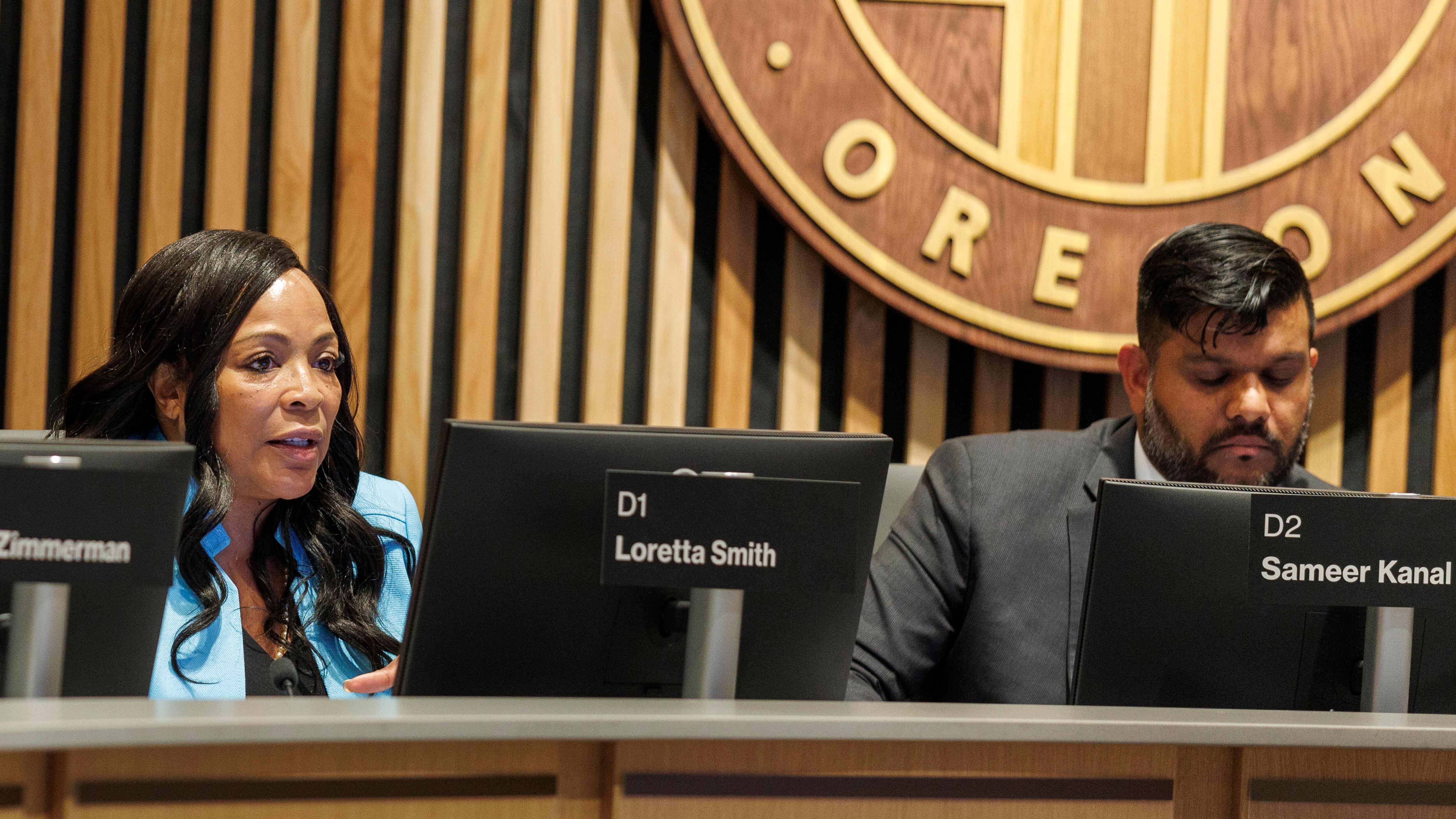Members of the Portland City Council peppered city administrators on Wednesday about two gaping budget holes that the council learned of only in recent weeks, adding more fuel to the conflict between the city’s legislative and administrative branches.
Since the beginning of the year, members of the council have raised concerns that the city administration has not been fully forthcoming about budget information, including where the city is spending money and what money is restricted in its uses or discretionary. Councilors have also voiced annoyance that, in their view, the administration has put fully baked budget decisions in front of the council for a rubber stamp.
Those tensions came to bear on the spring budget season, as councilors repeatedly said they weren’t provided with the budget information they sought, hampering their ability to dig in deep to the budget’s nooks and crannies.
The council approved the city’s 2025–26 budget in June. But just three months later, City Administrator Mike Jordan revealed two major budget holes that the council must address during the fall budget adjustment.
The first is a $16 million hole in the city’s general fund, a deficit first reported by The Oregonian. That’s due mostly to lower-than-expected revenues from the city’s business tax.
The second shortfall is in Mayor Keith Wilson’s sweeping shelter plan: $11 million allocated to Wilson’s plan in this year’s budget never materialized, according to a memo from Jordan to councilors in September. Most of that was money the city expected to receive from the state but did not.
On the dais on Wednesday, councilors grew frustrated with Jordan that they didn’t know about these shortages sooner.
“There’s this constant information gap or delay that makes it feel like we’re not in control of the powers that we’re given,” said Councilor Candace Avalos.
Jordan responded that “when it comes to the end of year and the next budget year, there’s always a delay in being able to give information that you can rely on.”
That answer didn’t satisfy councilors.
Councilor Sameer Kanal asked whether city administrators knew about the likely general fund budget shortfall before or after June 18, when the council approved the FY ’25–26 budget. (Oregon Public Broadcasting reported last month that administrators knew of the gap in June—three months before it alerted councilors of it.) Jordan said he didn’t know.
“The expectations that we’re trying to convey here are that we’re not learning about things in the media as it relates to the city’s financial situation,” Kanal said. “If it’s at the level of readiness where the mayor can know about it, it’s at the level of readiness where the council can know about it.”
Kanal added: “Whenever there’s a council priority, there’s never money. Whenever there’s a mayoral priority, all of a sudden, here’s money.”
Jordan largely defended his team’s work, but also conceded that his team could be quicker about supplying information to the council—even if the information isn’t fully fleshed out yet.
Councilor Loretta Smith, who’s been most vocal on the council about feeling stiffed by the administration, said she was “troubled” by what she felt was a lack of transparency around what funds were available to the city at any given time.
“What I’m troubled by is that the mayor’s office, they know about the money before we do,” Smith said. “They get a chance at having action at it before we do. We’re supposed to know about all monies out there…that’s what I’m troubled by.”
The City Council will address both of the gaps in the fall budget adjustment process, which takes place in October.
Despite the allegations by councilors that the administration withheld pertinent budget information from the council—which is the city’s budget authority—Jordan said the council does have ultimate control over the fall budget adjustment.
“Ultimately, the council has total authority over approving or changing what’s proposed in the [technical adjustment ordinance],” Jordan said.

